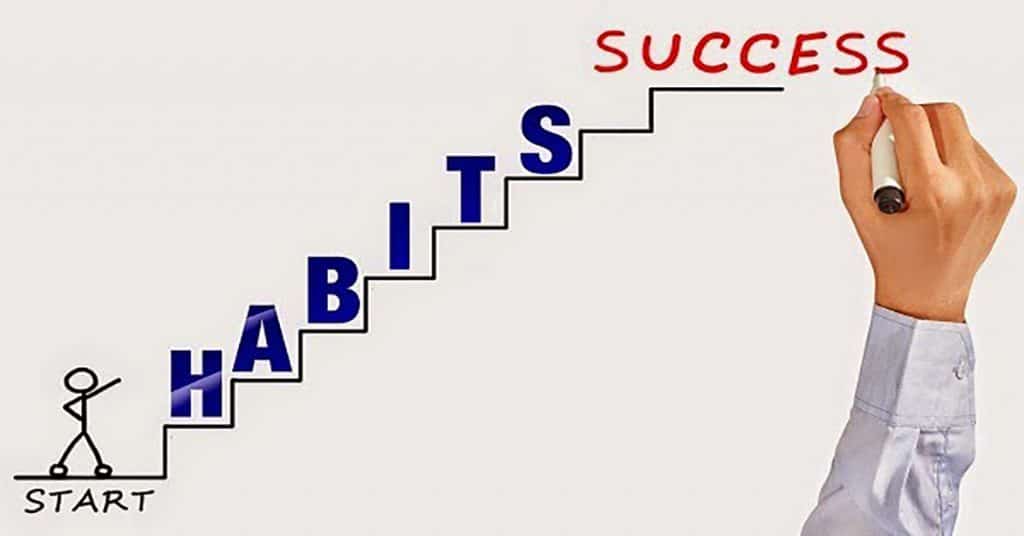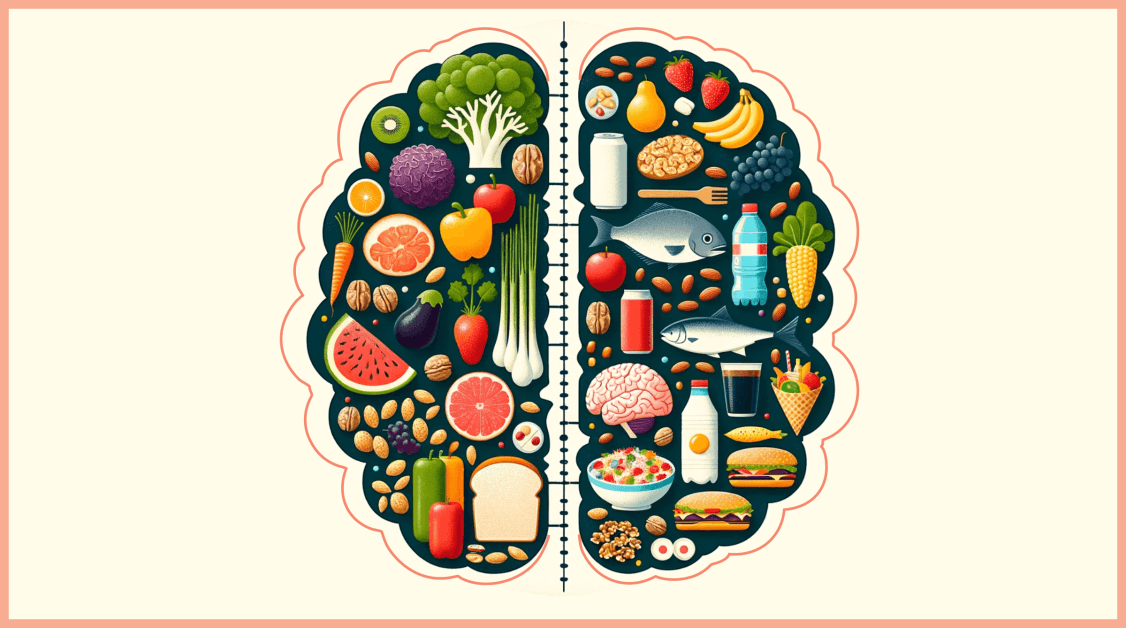Feeling Overwhelmed? Regain Control With These Simple Tips
Key Points:
- Overwhelm causes us to give up easily or prevent trying altogether.
- It is caused by a fear of the unknown, such as not knowing how to achieve a goal.
- We can overcome overwhelm by practicing mindfulness, breaking goals into smaller pieces, and prioritizing our goals.

Feeling Overwhelmed?
We all know that feeling of having too much to do in too little time, or when life just seems to keep dealing you bad cards. And no matter how many hours you dedicate to getting through your to-do list, it never seems to get smaller and you feel as if you’re chasing your tail.
Our work lives have become increasingly demanding, presenting us with ever more complex challenges at a near-relentless pace, and family life is rarely without its stresses.
Overwhelm is Becoming an Increasingly Modern Problem
A 2020 survey of over 3,000 U.S. residents by the American Psychological Association found that 60 percent of participants reported feeling overwhelmed by the number of issues that America is currently facing.
The complexities of our world have surpassed the complexities of our minds. Despite technology facilitating faster and more efficient processes, we now face an “always on” world where news and communication are now just a click away, 24/7.
It can be difficult to get a break. Seven out of ten American adults admit to answering emails and messages outside of work hours (Zimbra and OnePole Partnered Survey). Although technology helps reduce the amount of time a task takes to perform, we react to this not by reducing the amount of time we work, but instead by increasing the number of tasks we can complete.
The inevitable result of this is overwhelm. The more efficient we get at completing tasks, the more tasks we seem to take on. If we are to avoid the feelings of burnout and fatigue, we need to learn how to manage our life to reduce their effects.
What is Overwhelm?
Overwhelm is what causes that “deer in the headlights” moment. It can turn even the strongest of minds to mush when not mindful of it. Overwhelm is what clouds judgment, induces fear, and sends emotions haywire. My favorite definition of overwhelm is “to be buried or drowned beneath a huge mass”. This “huge mass” is a metaphor for the unknown.
I visualize the feeling of being overwhelmed as a fog within your mind. Imagine you have to run a marathon in dense fog where it is impossible to see past the end of your hand.
With no visual clues as to how long you have been running, or how long you have left to go, remaining in control of your thoughts and emotions to finish the race becomes orders of magnitude more difficult than if there were no fog and you could see your progress.
Without the mile markers, finish line, or supporting crowd cheering you on, the marathon becomes a more mentally demanding battle between the subconscious mind, which begs you to quit, and your conscious mind, which encourages you to finish.
Internal questions such as “I am exhausted, how long have I got left to run?” cannot be answered when this fog is present, frustrating the subconscious mind which craves comfort.

Symptoms of Overwhelm
There are many symptoms of overwhelm. Some are easily recognizable and some are more subtle. Here are the biggest telltale signs that you are suffering from feelings of overwhelm.
1) Procrastination
Feeling overwhelmed not only prevents many of us from following through with our goals and ambitions, it often prevents us from trying altogether.
Say you wish to create your own business. Where do you start? How do you get a business license? How much capital do you need to raise? How many sales would you need to keep cash flow positive? Where do you find employees willing to work at a new startup? How many months can you last without sales before you run out of money? What happens if you fail? Will the bank take your house? Where will your family live? With so many unknowns leading to further unknowns, confusion and frustration are inevitable.
When you cannot visualize the direct path to reach your goal, your mind fogs up and starts racing, and the emotional chimp, feeding on your frustration, tries to stop these feelings in the quickest way it knows how – by encouraging you to quit.
It is here where you are overwhelmed and are likely to procrastinate and avoid taking the complicated yet necessary steps needed to achieve your goals. And it is here where most people fail.
Look at your daily routine. How often you procrastinate may hint at how overwhelmed you may be. Do you procrastinate at specific times or for specific tasks? This suggests that this task may be difficult or boring and you need to plan specifics for how you can break through these barriers (see below for planning to avoid overwhelm).
Your Free Book is Waiting
You’ll Learn:
- How to Create Habits – The Right Way
- Create a Bulletproof Plan to Achieve Your Goals
- Master the Art of Failing
- Rediscover Your Love of Learning
- Instantly Become More Personable

2) Anxiety
We have all lost sleep thinking about all the things we need to do or all the things that could go wrong. And the more unknowns there are, the more ways our brain can panic over what could go wrong.
Related Post: The Failure Paradox – How Failing Is The Hidden Key To Success
Some people are naturally more anxious than others. Perfectionists strive for the utmost quality and are more likely to become anxious when things aren’t quite right. Successful CEOs and managers, however, are execution focused, just want to get things done, and tend not to dwell on the smaller things.
If you find yourself worrying about things, both past, and future, your anxiety is likely coming from being overwhelmed. To overcome this, we need to be mindful of what events are fueling these fears. We will see how we can use mindfulness to overcome this later.
3) Irritability
Whether it be a marathon, an essay, or starting a business, not knowing your current progress or being able to visualize the endpoint makes every situation seem exponentially more daunting.
Confusion leads to frustration, which sends the subconscious mind into a fit of fury. And once frustration takes hold of the subconscious mind it is extremely difficult to counter these feelings and regain control of your emotions.
Irritability is often the result, where the subconscious and emotional mind does not have time to relax and is much quicker to react abruptly. We end up like a dog being backed into a corner; no matter how sweet the dog may be, when forced into a corner its animal instincts will kick in and it will lash out.
Irritability is specific to overwhelm because it is constant. Our subconscious mind has a short fuse because it doesn’t have time to relax and reset.
When you notice yourself, or someone else, becoming irritated by small things, it is likely a sign that something in their life is causing them to be overwhelmed. Key an eye out for this in both yourself and others.
What Causes Overwhelm?
To overcome overwhelm, we first need to know exactly what causes it.
Overwhelm stems from the fear of the unknown. Many do not know how they are going to pay next month’s rent. Many fear giving a presentation to a room full of strangers.
The negativity bias often sends the mind pacing through all the worst-case scenarios that could occur, no matter how unlikely. With such activities, we cannot visualize the finish line and tasks seem more complicated than they usually are.
Even seemingly simple tasks can be daunting enough to cause procrastination. I delayed fixing a leaky faucet for over a month because I didn’t know how to address the problem and assumed plumbing was a difficult task. A 60-second youtube video and one 50-cent rubber washer were all that were needed to fix it.
I suffered a noisy leaky tap for over a month for the sake of a 5-minute fix. Had I known it was so easy, I could have cleared the fog in my mind and repaired it straight away. In response to these fears of the unknown, the subconscious mind will always be lurking in the back of your brain ready to convince you to take the comfortable way out and give up.
The Unknown Causes Us To Fear
The result of overwhelm on our subconscious mind is fear. And when we fear something happening (even though we know it may be beneficial for us longer-term) our instinct is to avoid it altogether (i.e. procrastinate).
We might consciously know that a five-mile run will be good for us, but the emotional mind knows that it will be exhausted and uncomfortable while doing it, and therefore tries to prevent us from discomfort now (by procrastinating) despite the longer-term and more significant danger of poor health later on.
Such is the paradox of the subconscious mind; keeping you comfortable now but at the detriment of your future health.
How to Overcome Overwhelm
1) Be Mindful
Mindfulness is the glue that binds together all topics on self-improvement. Whenever you find yourself overwhelmed by negative emotions, first recognize that these feelings are completely natural and would occur in almost anyone else under the same circumstances. They are natural because they are driven by emotion from the subconscious mind which we have little control over.
Related article; how to master mindfulness
After all, the negativity bias is genetic and inherent in us for a very good reason. Do not beat yourself up about negative thoughts derived from the subconscious mind. Remember, we have no immediate control of them and therefore cannot be judged by them. They will be there no matter what our conscious mind believes.
We can, however, control our conscious thoughts and hence our actions, so this is where we should direct our focus.
2) Break it down
If the fear of the unknown causes the feeling of being overwhelmed, then the second step should focus on turning these unknowns into knowns. We do this through planning, where we break large, complex, and seemingly difficult goals into bite-sized chunks that become easier to manage.
The aim is to break them down into sufficiently small tasks where we can plan our entire goal without any major unknowns, similar to how a construction project will break down a billion-dollar power station project into plannable day-to-day activities.
The key is to define your goal to the extent that you can visualize a direct path to the finish line. Then, once you have the vision, break the goals down into bite-size tasks, where each task is reduced to a level where you know exactly what steps you need to take.
Now your unknowns are converted to knowns and the fog starts to lift. When you can see and visualize your end goal, your focus narrows to what is most important and you can endure greater levels of complications and setbacks.
This is exactly how immensely complicated construction projects, such as multi-billion dollar nuclear power plants and bridges, get built. No one person in the team knows every step of the process – it is far too complicated for one person alone.
Instead, a team of planners works for months, even years, breaking the project down to sufficiently small enough tasks that are plannable from start to finish, including the resources and time needed to complete each one.
3) Prioritize
No matter how long your to-do list is, some tasks will always be more important, or more urgent, than others. You may shrink the length of your list by completing the easiest tasks first, but if they also happen to be the least important (as they tend to be), it will do nothing to solve your feelings of overwhelm.
From your list, prioritize from most important to least. This will pinpoint the primary source of your overwhelm. Ask yourself the question, “What one or two things, if taken off my plate would alleviate much of the stress that I feel right now?”
Pareto’s principle states that 80 percent of the output is determined by 20 percent of the input. In the same way, 80 percent of overwhelm can be relieved by focusing on the most important 20 percent of your tasks.
Conclusion
We will never succeed in fully removing the feeling of being overwhelmed; it is ingrained into our DNA far too strongly. But by being mindful, we can use the feeling of being overwhelmed to identify that we have to start prioritizing our tasks and tackle them in the order of highest priority.
Watch out for the classic symptoms of overwhelm: procrastination, anxiety, irritability, and fatigue. Each one can be a clear signal that you need to take action to tackle the source of overwhelm. Together, they can lead to stress and its associated physical dangers.
Remember to be mindful of your thoughts and feelings, and that even the best of minds will always fall victim to their impulsive subconscious thoughts. Break down your tasks into sufficiently small enough tasks and prioritize them based on their importance and urgency.
With practice, you will soon develop a seamless system for dealing with the multitude of tasks life often throws at us. And when we can efficiently deal with whatever life presents, we gift ourselves a skill that enables us to achieve whatever goals we dream of.
I would love to hear your comments down below!

Habits Are The Foundation Of Success
Knowledge is not power without action, and habits form the consistent actions that compound over time to guarantee success.

How To Stop Overthinking Everything in 5 Practical Steps
Discover how to stop overthinking in 5 practical steps: embrace uncertainty, limit decision-making time, and focus on actionable steps.

Food as Medicine: A Nutritional Perspective on Treating Anxiety
Explore how diet, from omega-3s to ketogenic diets, impacts anxiety, offering a holistic approach to mental health through nutritional psychiatry.

How Exercise Helps The Brain – From Brain Health To Cognitive Performance
Learn how exercise helps the brain, from reduced inflammation, slowed brain aging, and improved cognitive performance.

Is Cholesterol Really Bad For You? Debunking The Myths
Is cholesterol really bad for you? New research says it’s not the villain we were told—it’s time to rethink the cholesterol myth.

The Science of Stress – Causes, Symptoms, and Treatment.
Discover the science of stress – causes, symptoms, and treatment – and learn to embrace stress as a natural part of life while developing tools to navigate it effectively.